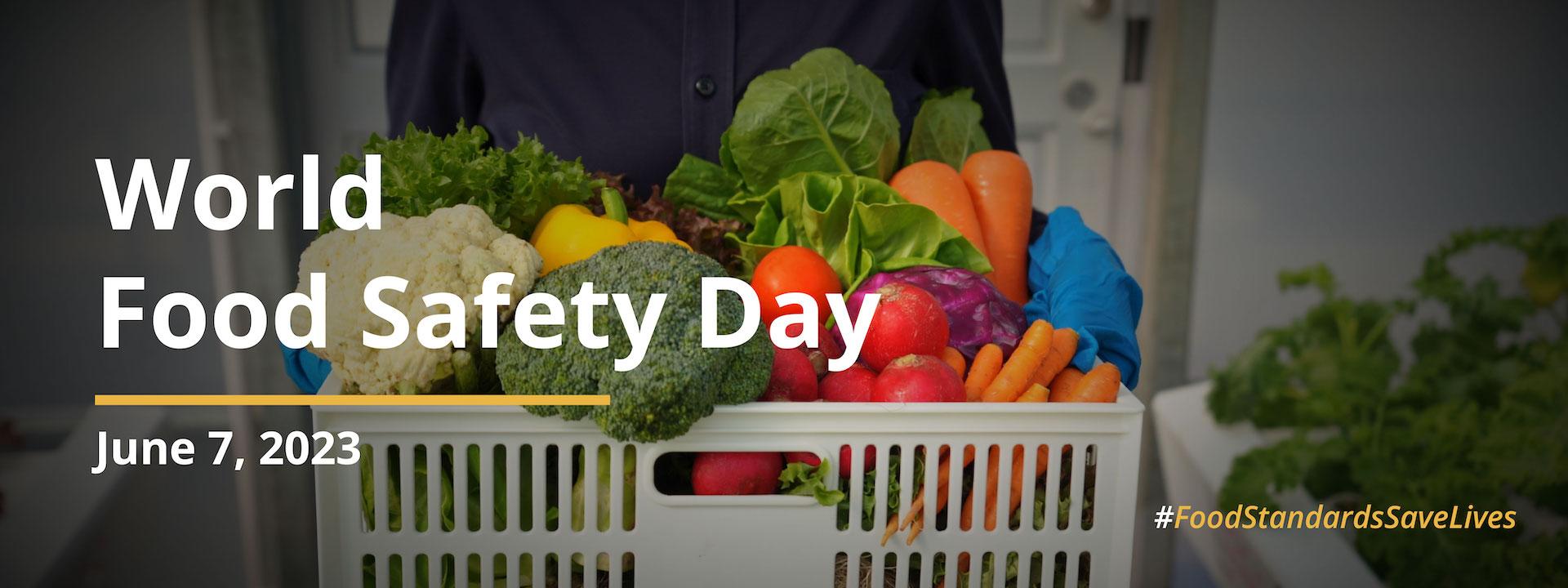Today, the Intergovernmental Authority on Development (IGAD) joins the rest of the world to commemorate the World Food Safety Day: “Food Standards Save Lives”.
IGAD is committed to assuring that all people in its member states and the region at large, at all times, have physical, social and economic access to sufficient, safe and nutritious food to meet their dietary needs and food preferences for an active and healthy life.
In this regard, IGAD Secretariat has a critical role to play for success of this food safety. The IGAD role in food safety include:
- Providing a platform for high level dialogues;
- Enhancing technical cooperation and building stronger capacity through improved technical capacity for effective coordination of implementation of the strategy. The Secretariat is also in the process of soliciting resources for building regional and national capacities for implementation of the strategy. Where necessary, the secretariat will provide support for implementation of the strategy at country level. IGAD secretary will actively disseminate food safety information, provide technical training and workshops for targeted audiences, including consumers, and support and produce guidance for food business operators and national food safety competent authorities; and
- Building partnership and international collaboration, these include positions for matters in the meeting agendas of international organisations such as the Codex Alimentaires commission (Codex), the International Plant Protection Convention (IPPC), and the World Organisation for Animal Health (WOAH). This approach will ensure a stronger voice of the IGAD member states in international forums.
In 2022, IGAD with support from FAO developed food safety strategy for 2022-2027, with vision “All foods available in the IGAD region are safe” and mission “To strengthen national and regional food safety systems in the IGAD region to assure food safety and facilitate fair practices in food trade”. The scope of the strategy will cover measures necessary for food safety assurance at all the segments of the entire food chain, from primary production to household level.
The development of this strategy was guided by the principles shown below:
- Public health protection against foodborne diseases;
- Science and risk-based decision;
- Reliance on food business operators to bear the primary responsibility to produce safe food;
- Harmonization, equivalence and mutual recognition of measures in facilitating regional and international trade of food;
- Transparency;
- Non-discriminatory measures;
- Integrated approach to food safety control;
- Partnerships, coordination, and collaboration at national, regional, and international levels;
- Target setting, monitoring, and evaluation to measure and motivate improvements in knowledge,governance, and practice; and
- Growing consumer demand for safe food is an integra part of food safety.
To achieve the vision of the strategy, IGAD Secretariat and IGAD member states commit to working together towards realisation of results in the below six key priority areas, through achievement of the respective key strategic objectives.
- Efficient and effective coordination of national food safety control services;
- Improved public health and enhanced intraregional and international trade of food;
- Food safety measures in national sectoral legislations with food safety implications;
- Improved private sector capacity and participation for compliance with food safety requirements and regulations;
- Improved stakeholder engagement and risk communication at both national and regional levels;
- Effective and efficient regional coordination of food safety matters;
- Support to improve national private sector capacity and compliance with food safety requirements;
- Increase in food safety officials’ and business operator’s awareness on the importance of Codex standards/text in promoting human health and enhancing the access of international market of locally produced or manufactured food importance of food safety in public health protection and food trade promotion; and
- Functional consumer led mechanisms for collation and sharing of information and communications on food safety.
By Dr Mohyeldeen Eltohami Taha Hamed (PhD)
Head of Agriculture & Food Security (AFSU)
Agriculture and Environment Division – IGAD

